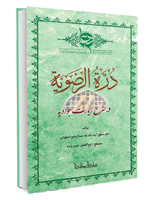- Prophet Muhammad (P.B.U.H&HF): Whenever one of you is needy and brings that to other people, he will not be satisfied. and Whenever someone is needy and brings that to Lord, he shall give him what he wants. sooner or later.
- Imam Sadiq (As.): Whenever you had tenderness in your heart, Pray. because your heart doesn't get tender unless it's pure.
- I told to Imam Baqir (A.S): “What is the meaning of “truly, Ibrahim was awwah and patient”? He replied: “Awwah means (the one who is) praying (to) and wailing (for God) a lot.””
- “Two people, who have acted alike, enter the heaven, but one of them sees the other one in a higher place. Then, he says: O’ Lord! How come has he a superior place in comparison to me while we acted alike? God the Almighty replies: “because he asked Me (whatever he needed) and you did not do that”.
- “The most knowledgeable person to God is the one who asks more from Him”
- “Whoever prays a lot, the angels say: This voice is familiar (to us) and this is the supplication which is accepted and this is the need which is provided”
-
The Holy Prophet (peace be upon him and his Household):
-
وَ لَوْ عَرَفْتُمُ اللَّهَ حَقَّ مَعْرِفَتِهِ لَزَالَتِ الْجِبَالُ بِدُعَائِكُم
If you knew god the way you should’ve known, Mountains definitely will be moved by your supplications. - Crying out of fear of God is the key to his mercy, it’s a sign for his acceptance and it’s a door to answering [supplications]
- Pray to God and believe in his answeres. But understand that God won't accept prays from an unwitting oblivious heart.
Conditions for the acceptance of supplications
Conditions for the acceptance of supplications
Although God promises in the Holy Qur’an that He answers the supplications, saying “Call Me and I will hear,”27 why are supplications usually not answered? What are the conditions for the acceptance of supplications?
This question is posed by all those who are engaged in supplication.
Scholars of scholastic theology [‘ilm al-kalam] argue that it is possible to not fulfill a threat [wa‘id] and such an act is rationally not bad. However, not to fulfill a promise [wa‘dah] is rationally bad and it is impossible for God to do something bad. So, not to fulfill the promise of answering the supplications as stated in the abovementioned verse is rationally bad provided that there is also no rational reason behind this non-fulfillment of promise. The Qur’an itself states:
﴿ إِنَّ اللَّهَ لا يُخْلِفُ الْمِيعَادَ ﴾
“Indeed Allah does not break His promise.”28
This verse is sufficient proof for us to expect that all our prayers would be accepted by God. In view of the need to be truthful to one’s promise and God’s emphasis on this point, what is the reason behind the non-acceptance of our supplications?
This question was repeatedly posed to the pure Imams (‘a) who gave different answers commensurate to the diverse levels of understanding of individuals. In some traditions, certain conditions have been set for the supplicants, or certain disciplines or times have been stipulated for the supplication.
Does it mean that these points are generally applied to the verses? In other words, is our supplication acceptable provided that it is made at a certain place, time and condition? If it is made in other than the specified times and conditions, will the promise of God not be fulfilled? Or, do these traditions have other meanings?
What we can deduce from the outer dimension of the verse is that it is generally applied, and the probability of its being limited is very weak. To explain this point, let us cite an example. If a generous person makes a promise to invite his guests to a party and amid their presence he does not entertain most of them, will they not question him as to why he is not fulfilling his promise? If he answers that it is because of their untidy clothes and their being late for a few minutes, his excuse will be unacceptable, because his invitation was a general one and those conditions (tidiness and punctuality) were not mentioned in the invitation. So, he must fulfill his promise and entertain all of them or have indisputable justification for doing otherwise.
To understand this verse better, it is necessary to examine it closer:
1. What does it mean by “call” [ud‘u]? Does supplication [du‘a’] mean mentioning our request even without necessarily understanding it? Or, does it mean without paying attention to it even though we understand it? Or does it mean so, even if it is against our inner liking, assuming that we pay attention to it?
It is true that verbal utterance associated with request is called ‘supplication’—for example, as we call someone and need something from him—but words indicate what is in the mind and cannot be treated absolutely. It does not mean that the form of expression affects world events and that every word in any language is effective. As stated earlier, supplication is a matter of the heart and the tongue only tells what is in the heart. So, supplication must originate from the heart and soul of man and he must truly be asking for something. If he only utters some words without any sincerity, he is not truly asking for something and, indeed, is not engaged in his supplication.
2. Supplication must truly represent “Call Me” [ud‘uni]. That is, the request must be addressed solely to God. If a person observes the abovementioned conditions but his heart is not focused on God, he has actually not supplicated. For example, we pray for knowledge; we truly like knowledge; and we are serious in our request; yet, we think that to be learned has nothing to do with God as it depends only on our own efforts and endeavors. We say:
أَللّهُمَّ إِنِّي أَسْأَلُكَ عِلْماً نَافِعاً وَعَمَلاً صَالِحاً.
“O Allah! Grant us beneficial knowledge and righteous conduct.”
Yet, deep in our hearts we do not believe that God bestows knowledge on man. In other words, we are only after the inspirational aspect of supplication that knowledge is something good which must be acquired. By “O Allah” [Allahumma] we actually mean “God willing” [insha’ Allah] which we only ceremoniously recite in many of our activities. It is not actually suspension of the will of God. Similarly, at the beginning of many works, we recite “In the Name of Allah, the All-beneficent, the All-merciful” merely as words of compliment. Yet, only rarely do we really remember God and sincerely begin our activity with His Name. The same is true in the case of most of our supplications. It is true that outwardly, we are asking something from God but in reality, we do not have firm conviction that God must grant our request. In this case also, we must not expect the acceptance of our supplication.
Such ‘supplications’, which are mere utterance of some words and are not really requesting something from God will never be accepted because our true request is not addressed to God. Rather, we rely upon material means and our own power. Even if those who are engaged in such ‘supplications’ are asked whether or not God really endows knowledge to man, they will answer and argue that acquisition of knowledge has nothing to do with God!
The reason behind the non-acceptance of such ‘supplications’ is the fact that they do not have faith in the power of God and in reality, they are not asking God for anything. Therefore, true supplication is the request which is addressed to God and which we truly believe that only He can grant. If it is not so, it is sheer words of compliment. But as to what extent these words of compliment are beneficial is a different story, which requires a separate discussion. We must ask for forgiveness of God for such manner of supplicating for with this kind of supplicating and frame of mind, we have treated God as weak and impotent and we believe in things about Him which are beyond His Station.
The verse “Call Me and I will hear” is a condition expressed in command. It is actually, “If you call, I will answer you.” This condition will be realized if first of all, we are serious in our request, and secondly, our request is addressed to God whom we regard as the only One who can grant our request. In this manner, the conditions for the acceptance of supplication will materialize. Can it be said that such a supplication might still not be accepted?
It is narrated that the Israelites were afflicted with drought for a long period. Prophet Musa (‘a), along with a group, went out of the town to pray for rain [salat al-istisqa’] and the following was revealed:
كَيْفَ أَسْتَجِيْبُ لَهُمْ وَقَدْ أَظْلَمَتْ عَلَيهِمْ ذُنُوْبُهُمْ... يَدْعُوْنَنِي عَلىٰ غَيْرِ يَقِيْنٍ.
“How can I answer them (their supplication) when they are engrossed in sins… They call on Me yet they do not have certainty [yaqin]?”29
Another point worth mentioning here relates to the conditions necessary for the acceptability of supplication. Sometimes, we ask God for something, thinking it is good for us and can contribute to our spiritual perfection. But in reality, we are wrong. We do not know whether the grant of our request is ultimately good for us or not. If we knew the repercussions of the grant of our request, we would definitely make a different request. Such requests are like those of a child who does not know its harmful effects, which if he did, he would never ask for it.
In cases when we ask for our general welfare but we are wrong in identifying what is exactly good for us, it is possible that our supplication is granted, but according to our general welfare. In such instances, God, the Exalted, may overlook our mistake and grant our request according to the general welfare that we ask from Him. He grants us something else, which is what we would ask Him for if we only saw the whole picture. In this case, God has not deprived us of His grace and at the same time, He has corrected our mistake.
Keeping in view of the three points—serious request, request addressed to God, and what is really good for us—which can be inferred from the abovementioned verse, it can be said that the verse has general application.
There are also cases when instead of granting a request in this world, God gives a person a distinct station in the hereafter. This is related to the third point that can be inferred from the verse in question. That is, if a person who has faith in the hereafter, realizes that his request in relation to a worldly affair is insignificant in comparison to the otherworldly reward, he will definitely prefer his perfection and felicity. If the truth is made manifest to him, he will certainly request them for the hereafter.
As God, the Exalted, is aware that the faithful are more interested in the affairs of the hereafter, He sometimes reserves their worldly requests for the hereafter. When they find out what station they will occupy in the next world, they will thank God and be pleased with the arrangement set by the Lord. This point has been mentioned in Du‘a’ al-Iftitah:
وَلَعَلَّ الَّذي اَبْطأَ عَنّي هُوَ خَيْرٌ لي لِعِلْمِكَ بِعاقِبَةِ الاُْمُورِ.
“Perhaps slowing down [in the grant of my requests] may be a blessing in disguise because You alone know the consequences of all affairs.”
The Messenger of Allah (S) is reported to have said:
مَا مِنْ مُسْلِمٍ يَدْعُو بِدَعْوَةٍ لَيْسَ فِيْهَا إِثْمٌ وَلاَ قَطِيْعَةُ رَحِمٍ إِلاَّ أَعْطَاهُ اللهُ بِهَا إِحْدىٰ ثَلاَثَ: إِمَّا أَنْ يُعَجِّلَ دَعْوَتَهُ وَإِمَّا أَنْ يُدَخِّرَهَا لَهُ فِي الآخِرَةِ وَإِمَّا أَنْ يَكُفَّ عَنْهُ مِنَ الشَّرِ مِثْلَهَا.
“No Muslim who supplicates—unless it is for committing sins and severing kinship ties—is given by Allah one of these three things: He grants his request; He reserves it for him in the hereafter; or in lieu of it, He repels calamity to befall him.”30
In addition to the abovementioned points, other reasons for the non-acceptance of supplications are also mentioned in traditions. For example, it is mentioned in some traditions that those who abandon the duty of “enjoining what is good and forbidding what is evil” shall be afflicted with two calamities. Firstly, their supplications will not be accepted and secondly, the vilest and most corrupt of people will rule over them.
Some people complained to the Commander of the Faithful (‘a) that their supplications were not being accepted. The Imam (‘a) stated the reason behind it:
إِنَّ قُلُوْبَكُمْ خَانَتْ بِثَمَانِ خِصَالِ: أَوَّلُهَا إِنَّكُمْ عَرَفْتُم اللهَ فَلَمْ تُؤَدُّوا حَقَّهُ كَمَا أَوْجَبَ عَلَيكُمْ فَمَا أَغْنَتْ عَنْكُمْ مَعْرِفَتُكُمْ. ألثَّانِيَةُ...
“Your hearts have committed treachery in eight things (and for this reason, your supplications are not being accepted).
(1) You recognize God but you do not give His due right.
(2) You believe in His Messenger, yet you violate his Sunnah.
(3) You read His Book but you do not act upon it.
(4) You say that you are afraid of God’s punishment or wrath but you commit acts which draw you closer to it.
(5) You say that you yearn for His reward, yet you do things which keep you away from it.
(6) You enjoy His blessings but you do not express your gratitude.
(7) You are commanded to be enemies of Satan but you befriend him.
(8) You place the defects of people before your eyes but are negligent of your own defects.
Given this, how can you expect your supplications to be accepted when you have closed their doors? Be wary of God; reform your actions; purify your intentions; enjoin what is good; and forbid what is evil so that your supplications might be accepted.”31
In addition, we do not consider what we can usually get through common means as an acceptance of our supplication and as coming from God. This is while the Qur’an attributes to God all things and affairs. Moreover, unconditional acceptance of supplication is not incumbent upon Allah, as explicitly stated in the Qur’an. If the supplication of every person is supposed to be accepted, there would be sets of contradictions and the system of the universe would be in disarray. God says, thus:
﴿ وَلَوِ اتَّبَعَ الْحَقُّ أَهْوَاءَهُمْ لَفَسَدَتِ السَّمَاوَاتُ وَالأرْضُ وَمَنْ فِيهِنَّ ﴾
“Had the Truth followed their desires, the heavens and the earth would have surely fallen apart [along] with those who are in them.”32
God not only turned down the supplication of His prophet Ḥadhrat Nuh (Noah) (‘a) to save his son, but also reproached him for it:
﴿ قَالَ يَا نُوحُ إِنَّهُ لَيْسَ مِنْ أَهْلِكَ إِنَّهُ عَمَلٌ غَيْرُ صَالِحٍ فَلا تَسْأَلْنِي مَا لَيْسَ لَكَ بِهِ عِلْمٌ إِنِّي أَعِظُكَ أَنْ تَكُونَ مِنَ الْجَاهِلِينَ ﴾
“Said He, ‘O Noah! Indeed he is [a personification] of unrighteous conduct. So do not ask Me [for something] of which you have no knowledge. I advise you, lest you should be among the ignorant.”33
In addition to these points, even assuming that apparently the noble verse “I will answer you” means unconditional acceptance of supplication, the moments for the acceptance of supplication are specified by God. After Ḥadhrat Ya‘qub (Jacob) (‘a) who was a prophet prayed to God for the return of Ḥadhrat Yusuf (Joseph) (‘a), in spite of his prayer being accepted, it took around forty years before Yusuf (‘a) was able to return to him.
It is mentioned in some traditions that sometimes a faithful person would supplicate to God but God would tell the angels: “His supplication is accepted, but delay its materialization because I want to hear his voice (praying to Me).”34
This proves that purification of the soul is attained through a connection with God and supplication. The acceptance of supplication is sometimes delayed because the true perfection of man lies in his connection with God and not in the acceptance of his supplication. For example, the supplication of one who is sick, seeks refuge in God from the pain he is suffering and prays to Him for his recovery, contributes to his spiritual perfection and proximity to God. If he recovers on the very first day, he will no longer pray or pay attention to God, and his attention towards God will decrease.
Another example is of a person who prays for wealth to be spent in the way of Allah and thus attains spiritual reward. Since God knows that once he becomes wealthy he will forget his Lord, He will not let him attain his ambition. However, God will provide his sustenance through other means and, thereby, he will obtain the same spiritual reward.
God exercises such an authority [wilayah] over His faithful servants. This is one of the forms of His wilayah over the faithful.
In the Presence of the Beloved
Muhammad Taqi Misbah Yazdi







